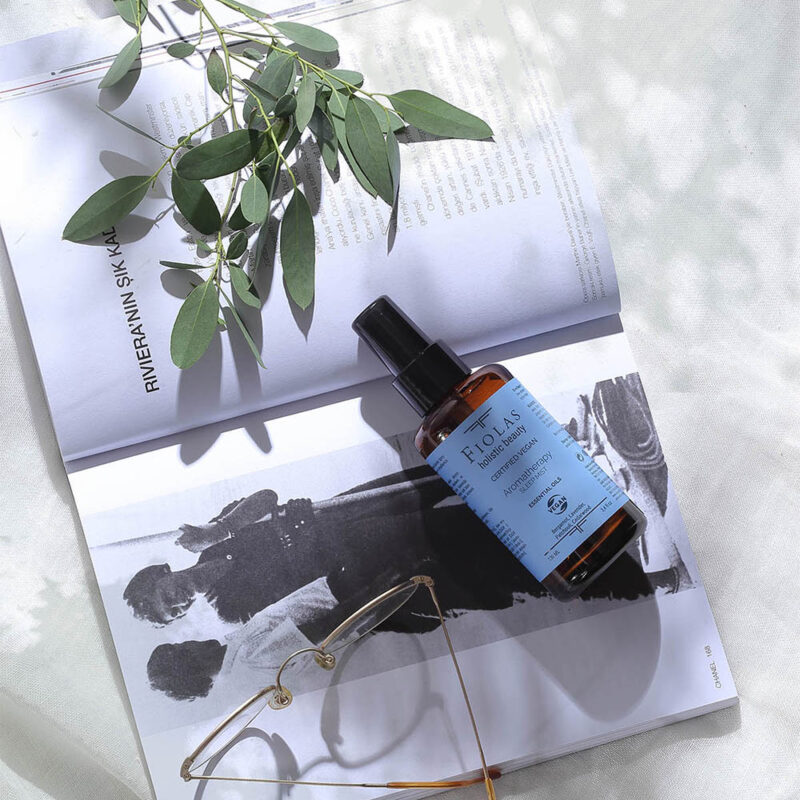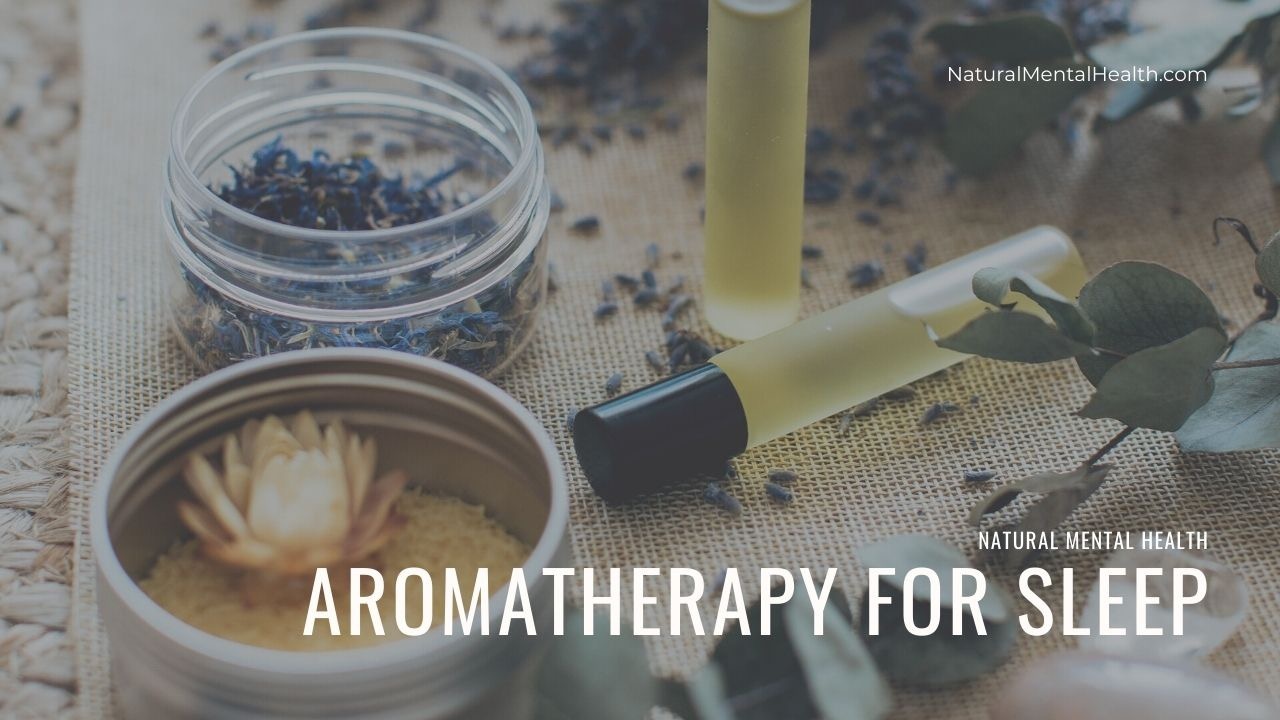In a world where restful sleep often eludes us, aromatherapy emerges as a beacon of tranquility. This ancient practice harnesses the power of essential oils to soothe the mind, relax the body, and lull us into a peaceful slumber. Embark on a captivating exploration of aromatherapy’s slumber-inducing secrets, unlocking the gateway to serene nights and rejuvenated mornings.
Aromatherapy’s gentle embrace invites us to delve into the realm of essential oils, each possessing unique properties that contribute to a restful night’s sleep. From the calming lavender to the grounding chamomile, discover the symphony of scents that orchestrate a harmonious sleep experience.
Benefits of Aromatherapy for Sleep
Aromatherapy is a holistic therapy that utilizes the aromatic compounds of essential oils to promote relaxation and improve sleep quality. Essential oils, extracted from plants, possess calming and sedative properties that can help alleviate stress, anxiety, and insomnia.
Essential Oils for Sleep
Numerous essential oils have been studied for their sleep-promoting effects, including:
- Lavender:Known for its calming and relaxing properties, lavender oil can reduce stress and promote relaxation, making it an ideal choice for bedtime.
- Chamomile:Chamomile oil has sedative and anti-anxiety effects, helping to calm the mind and body, promoting restful sleep.
- Bergamot:Bergamot oil has uplifting and calming properties, reducing stress and anxiety while promoting relaxation.
- Vetiver:Vetiver oil has grounding and calming effects, helping to reduce stress and anxiety, and promoting deep sleep.
Methods of Aromatherapy for Sleep
Aromatherapy for sleep can be practiced in various ways:
- Diffusion:Using a diffuser to disperse essential oils into the air, creating a calming and relaxing atmosphere in the bedroom.
- Inhalation:Inhaling essential oils directly from the bottle or using a personal inhaler, providing a quick and concentrated effect.
- Topical application:Applying diluted essential oils to the skin, such as the soles of the feet or temples, allowing for localized absorption and relaxation.
Creating a Relaxing Aromatherapy Routine
Creating a relaxing aromatherapy routine before bed can help you unwind and drift off to sleep more easily. Here are some tips for creating a soothing aromatherapy ritual:
Selecting and Blending Essential Oils
Choose essential oils that are known for their calming effects, such as lavender, chamomile, and valerian root. You can blend these oils to create a custom scent that is perfect for you.
Incorporating Aromatherapy into Your Bedtime Ritual
There are many different ways to incorporate aromatherapy into your bedtime routine. You can add a few drops of essential oil to your bath, use a diffuser to disperse the scent throughout your room, or apply the oils directly to your skin.
- Taking a Bath:Add 5-10 drops of essential oil to a warm bath and soak for 15-20 minutes. This is a great way to relax your body and mind before bed.
- Using a Diffuser:Add 5-10 drops of essential oil to a diffuser and run it for 30-60 minutes before bed. This will help to create a calming atmosphere in your room.
- Applying Essential Oils to the Skin:Dilute 1-2 drops of essential oil in 1 teaspoon of carrier oil, such as jojoba or coconut oil. Massage the mixture into your skin, focusing on areas like your temples, wrists, and feet.
Science Behind Aromatherapy and Sleep

Scientific evidence supports the use of aromatherapy to enhance sleep quality. The olfactory system, which detects scents, plays a crucial role in regulating sleep-wake cycles. When we inhale essential oils, their molecules interact with receptors in the olfactory bulb, sending signals to the brain’s limbic system, which controls emotions and memories.
Essential Oils and Relaxation
Essential oils like lavender, chamomile, and bergamot contain compounds that have calming and sedative effects. These compounds bind to GABA receptors in the brain, increasing the levels of the inhibitory neurotransmitter GABA, which promotes relaxation and reduces stress.
Olfactory System and Sleep-Wake Cycles
The olfactory system is directly connected to the hypothalamus, a brain region involved in sleep regulation. When we inhale certain scents, such as lavender, the hypothalamus releases hormones like melatonin, which induces sleepiness and helps maintain a regular sleep-wake cycle.
Essential Oils for Sleep
Essential oils, derived from plants, have been used for centuries to promote relaxation and sleep. Their therapeutic properties can help calm the mind, reduce stress, and improve sleep quality. This guide provides a comprehensive overview of essential oils for sleep, their benefits, and how to use them effectively.
Essential oils work by interacting with the body’s olfactory system and limbic system, which are responsible for emotions and memories. When inhaled, the scent molecules travel to the brain, triggering physiological and psychological responses that can promote relaxation and sleep.
Essential Oil Table
The following table organizes essential oils based on their sleep-promoting properties:
| Oil Name | Scent | Benefits | Recommended Usage |
|---|---|---|---|
| Lavender | Floral, herbaceous | Promotes relaxation, reduces anxiety, improves sleep quality | Diffuse, apply topically diluted with a carrier oil, or add to a warm bath |
| Chamomile | Sweet, floral | Calms the mind, reduces stress, promotes relaxation | Diffuse, drink as tea, or apply topically diluted with a carrier oil |
| Ylang-ylang | Floral, sweet | Promotes relaxation, reduces stress, balances hormones | Diffuse, apply topically diluted with a carrier oil, or add to a warm bath |
| Bergamot | Citrus, fruity | Reduces anxiety, promotes relaxation, improves mood | Diffuse, apply topically diluted with a carrier oil, or add to a warm bath |
| Vetiver | Earthy, woody | Grounds and calms the mind, promotes relaxation, reduces stress | Diffuse, apply topically diluted with a carrier oil, or add to a warm bath |
| Cedarwood | Woody, earthy | Promotes relaxation, reduces stress, improves sleep quality | Diffuse, apply topically diluted with a carrier oil, or add to a warm bath |
| Clary sage | Floral, herbaceous | Balances hormones, reduces stress, promotes relaxation | Diffuse, apply topically diluted with a carrier oil, or add to a warm bath |
Case Studies and Success Stories

Numerous individuals have experienced significant improvements in their sleep quality through the use of aromatherapy. Here are a few case studies and testimonials that highlight the effectiveness of this natural remedy:
Overcoming Insomnia with Lavender
Sarah, a 42-year-old woman, struggled with chronic insomnia for several years. Despite trying various sleep medications, she found little relief. As a last resort, she decided to give aromatherapy a try.
Sarah incorporated lavender essential oil into her bedtime routine. She diffused the oil in her bedroom for 30 minutes before bed and applied a few drops to her pillow. Within a few weeks, she noticed a significant improvement in her sleep quality.
She was able to fall asleep more easily, stay asleep throughout the night, and wake up feeling refreshed.
Reducing Restless Sleep with Bergamot
John, a 35-year-old man, experienced frequent restless sleep. He would often toss and turn all night, waking up tired and irritable. After hearing about the calming effects of bergamot essential oil, he decided to try it.
John added a few drops of bergamot oil to his bathwater before bed. He also diffused the oil in his bedroom for 1 hour before sleep. After a few nights, he noticed a reduction in his restless sleep symptoms. He was able to relax more easily and sleep more soundly.
Ending Remarks
As we conclude our journey into the world of aromatherapy sleep, let us embrace the transformative power of essential oils. By incorporating them into our bedtime rituals, we unlock a gateway to a restful sanctuary, where the worries of the day melt away and tranquil slumber envelops us.
May the fragrant whispers of aromatherapy guide us towards a life filled with peaceful nights and revitalized mornings.